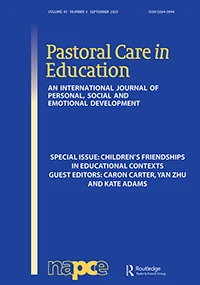Pedagogical guidelines for developing the spiritual dimension in early childhood and primary education: a mixed-methods study in the Spanish context
2025
Article

This study explores how the spiritual dimension can be meaningfully integrated into early childhood and primary education in the Spanish context. Using a mixed-methods approach, the research combines quantitative data from a questionnaire completed by 488 teachers with qualitative insights from two focus groups with early childhood and primary educators. The findings show that while spiritual practices are present in schools – often through activities such as gratitude, silence, or reflection – they are implemented inconsistently and often depend on individual teacher initiative. Key themes identified through thematic analysis include conceptions of spirituality, practical strategies, necessary teacher training and resources, and institutional challenges. A key finding is that spiritual development must be intentionally embedded in educational structures, supported by clear programs with sequenced objectives, content, and materials. The role of the teacher emerges as central: authenticity, personal preparation, and ongoing mentoring are essential. In addition, the integration of spirituality requires staff-wide sensitivity as well as curricular flexibility to embed this dimension both transversally and in specific educational moments. The study concludes that spirituality is an essential component of holistic education that requires structural support, pedagogical intentionality, and reflective evaluation to be effectively implemented and provides pedagogical guidelines to develop this dimension in children. These findings have implications for teacher education, school policy, and future research on children’s spiritual development.
Author:
Jorge Burgueño-López
Publisher:
Pastoral Care in Education
Link:
View online
Digital Object Identifier:
https://doi.org/10.1080/02643944.2025.2585818
